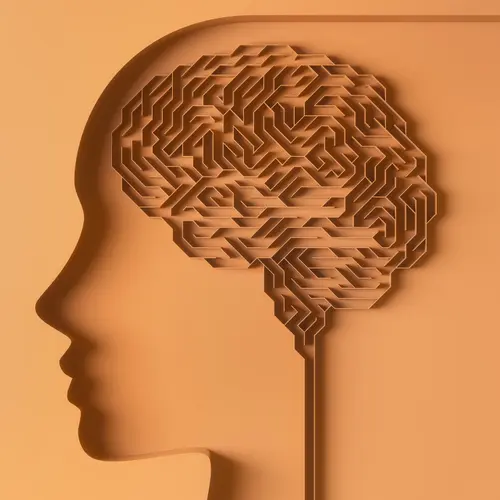What Is Childhood Schizophrenia?
Childhood schizophrenia is a severe mental health disorder in children younger than age 13 that affects the way they deal with reality. They might have unusual thoughts, feelings, or behaviors. It’s also called childhood-onset or very early onset schizophrenia.
The disorder is rare -- less than 1% of children are diagnosed with it -- and may be hard to spot. There’s no cure, but treatment can help.
Childhood Schizophrenia Signs and Symptoms
Some children who develop schizophrenia first go through a period called the prodrome or the prodromal phase. They might withdraw from daily life, with more anxiety and less interest in school or friends. Not all children who show these signs will have a psychotic disorder, so it’s important to talk to your doctor if you notice any issues.
Early childhood schizophrenia symptoms
A baby or toddler may have signs of schizophrenia that are different from those in older children, teens, and adults.
The disorder affects how your child develops. You may notice things like:
- Long periods in which they’re sluggish or not active
- Floppy arms or legs
- Delays in crawling, walking, or talking
- Odd movements such as rocking or flapping their arms
- A limp or slumped posture
Some of these symptoms show up in children with other problems besides schizophrenia. And some happen in kids without any mental health conditions. Only your child's doctor can figure out what's really going on.
Later childhood schizophrenia symptoms
In older kids, you might notice the behavior changes of schizophrenia over time or suddenly, as if out of nowhere. Your child may act withdrawn and clingy, or they may talk about strange and disturbed ideas and fears.
Tell your doctor as soon as you see symptoms of schizophrenia. It's important to get a diagnosis and start treatment before your youngster shows signs of a break from reality, called psychosis.
Symptoms in older children include:
- They can't tell the difference between reality and dreams, stories, TV shows, etc.
- Intense fear that someone or something is hurting them (delusions)
- Hearing things that aren’t real (auditory hallucinations) such as whispers or voices telling them to do something
- Seeing things that aren’t real (visual hallucinations) such as flashing lights or patches of darkness
- Moodiness or anxiety
- A lack of emotional expressions when they speak
- Agitated, confused behavior, followed by periods of sitting and staring
- Acting like a much younger child
Again, not every child who has these symptoms has schizophrenia. Talk to your doctor if you have any concerns.
Experts divide symptoms of childhood schizophrenia into three categories: positive, negative, and cognitive.
- Positive symptoms are psychotic, which means there’s a break with reality. These include unusual movements, unusual thoughts, and hallucinations.
- Negative symptoms involve behavior and emotion. They include isolation, not speaking much or at all, and showing little or no emotion.
- Cognitive symptoms show differences in how a child thinks or remembers, such as trouble focusing or understanding something.
Childhood Schizophrenia Causes
Experts aren't sure exactly what causes schizophrenia or why it starts in childhood for some and at an older age for others.
Your child’s genes and brain chemicals may play a role. The disease sometimes happens in more than one family member. If someone in your family has schizophrenia, your child has a higher chance of getting it.
Some experts also think schizophrenia may be linked to things that happened during a woman’s pregnancy, such as:
- Drug or alcohol use
- Contact with viruses, bacteria, or chemicals
- Stress
- Poor nutrition
Childhood Schizophrenia Diagnosis
A pediatric psychiatrist can diagnose schizophrenia in children. Because different mental health conditions can have similar symptoms, it can be tough to get the right diagnosis. It might take a lot of time and effort for everyone.
Other specialists will get involved to give your child a complete physical exam, blood tests, mental health tests, imaging tests of their brain, and other exams. They’re all key in finding the right diagnosis and coming up with a treatment plan to help your child manage the disease.
Childhood Schizophrenia Treatment
Schizophrenia treatment for children is like treatment for adults. It includes:
- Medications. Your doctor may suggest one or more antipsychotics. These drugs are also called neuroleptics. They manage delusions (beliefs in things that aren't true) and hallucinations (seeing or hearing things that aren't real). Talk with your doctor about side effects and other drugs your child shouldn’t take while they’re using these medicines.
- Psychotherapy. Mental health professionals who specialize in childhood schizophrenia may help your child manage their symptoms. Family therapy and support groups can teach your child and others in the family about the disease and about how to deal with stressful situations.
- Life skills training. Special classes can teach your child social skills and how to do daily tasks. They can also get tips on how to overcome challenges in school.
If your child has severe symptoms or a mental health crisis, a stay in the hospital can be the quickest way to get symptoms under control in a safe place. Other options include part-time hospital and home care.
Childhood Schizophrenia Complications
Without treatment, schizophrenia can cause problems in childhood and later in life. These include:
- Other mental disorders
- Self-harm or suicide
- Drug or alcohol use disorders
- Conflict with and isolation from family and friends
- Legal and financial problems
- Trouble living alone, going to school, or keeping a job
Childhood Schizophrenia Outlook
When childhood schizophrenia is diagnosed and treated early, your child may be able to manage it as they grow into an adult. Health professionals will keep tabs on their condition and treatments for life.
Although there’s no cure for this disorder, people who have schizophrenia can succeed at school, at work, and in their social lives.

